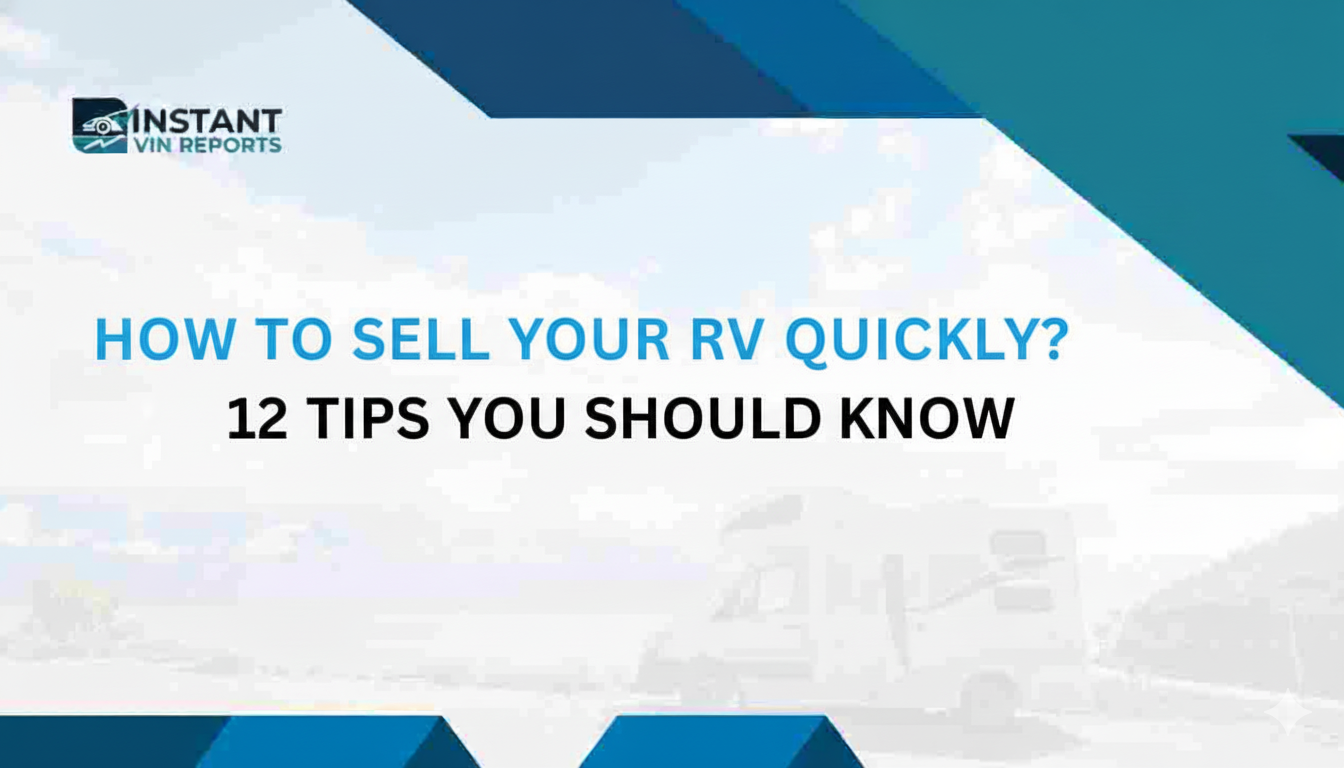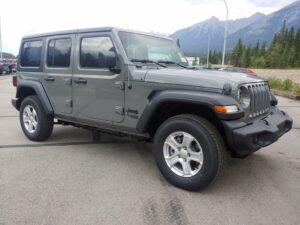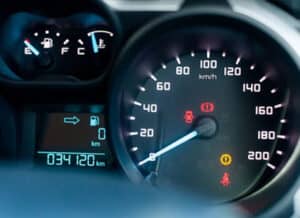Buying a car isn’t just about the Manufacturer’s Suggested Retail Price (MSRP). Registration and fees can add significant costs depending on the state. Some states have low or no sales tax, making them ideal for buyers, while others have higher fees, making them the worst state to buy a car. This guide will show you the cheapest states to buy a used car, helping you avoid unnecessary expenses and make an informed purchase.
READ ALSO: How to successfully buy a car at an auction here.
The Cheapest States to Buy a Used Vehicle
It’s a fairly popular opinion that buying a pre-owned car is economically better than buying a new one from a dealership.
Surely, one can save a lot of money by purchasing a pre-owned vehicle. While this is true, the CarAndDriver.com report shows that used vehicle prices are also increasing.
The report shows that the average cost of a pre-owned car has risen by more than 35% between 2021 and 2024.
Certain states are cheaper than others so that an out-of-state purchase might provide low buying rates. However, additional costs such as taxes and shipping might be applicable.
The following are five states with the lowest average pre-owned car price, based on data culled from iSeeCars.
According to a study by iSeeCars.com analyzing car sales in the recent past, these five states boasted the lowest average prices for pre-owned cars:
Indiana – $21,961
Indiana takes the crown for affordability, with an average used car price of $21,961. This is a significant 11.1% below the national average cost, making it a buyer’s paradise.
Ohio – $22,244
Ohio follows closely behind, with the average second-hand vehicle costing $22,244. Budget-minded car shoppers might find attractive deals in the Buckeye State.
Connecticut – $22,528
Surprisingly, Connecticut enters the mix with an average pre-owned car price of $22,528. This could be due to a combination of factors, such as a higher concentration of leased vehicles coming off-lease or a trend towards newer models displacing older ones on the used car market.
Virginia – $22,618
Virginia nabs the fourth spot with an average used car price of $22,618. With its diverse selection of urban and rural areas, Virginia might offer a broader range of pre-owned car options at attractive prices.
Kentucky – $22,995
Rounding out the top five is Kentucky, where the average used car can be found for $22,995. This Southern state might present opportunities for those seeking good value on a pre-owned vehicle.
New Hampshire – $31,833
New Hampshire is the cheapest state to buy a used car, with an average price of $31,833. One major factor contributing to the low costs is the absence of a sales tax. This means you can save significantly when purchasing a vehicle here, especially for higher-priced cars. New Hampshire also has competitive insurance rates, further reducing the overall cost of ownership.
Florida – $34,519
Florida is a popular choice for car buyers seeking lower prices, with an average cost of $34,519 for used vehicles. The state’s large retiree population means there’s often a high supply of well-maintained, low-mileage cars. Additionally, the high volume of used cars on the market keeps prices competitive. Buying a car in Florida can be particularly advantageous if you’re looking for gently-used models from premium brands.
Oregon — $35,556
Oregon offers used car buyers a favorable deal with an average price of $35,556. The key factor here is the absence of a state sales tax, similar to New Hampshire. This makes purchasing a vehicle in Oregon more affordable, especially for those on a budget. The state’s mild climate also helps keep cars in good condition, often resulting in better value for the buyer.
North Carolina – $34,725
In North Carolina, the average price of a used car is $34,725, making it one of the more affordable states to buy a vehicle. The state’s thriving used car market and relatively low registration fees contribute to the lower prices. North Carolina’s diverse landscape also offers various cars, from practical sedans to rugged SUVs, catering to different preferences and needs.
Missouri – $33,596
Missouri rounds out our list with an average used car price of $33,596. The state’s competitive market and moderate sales tax make it an appealing choice for budget-conscious buyers. Missouri also benefits from a balanced mix of urban and rural sellers, providing prospective buyers various options. Whether you’re looking for a reliable commuter car or a family SUV, Missouri offers great deals on quality used vehicles.
It’s important to remember that these are average prices, and individual car deals can vary depending on factors like the specific make, model, year, mileage, and condition.
However, this data provides a valuable starting point for car shoppers looking to stretch their dollar and find a great deal on a quality used car. You can check out some classifieds, such as FindUsedOnline, for good deals on used vehicles.
READ ALSO: The 10 Best Cars for Snow and Winter With Fuel-Efficient
States Regarded As The Worst to Buy a Car
While some states offer steal-worthy deals on used cars, others can dent your wallet. Here’s a look at the five states with the highest average used car prices based on iSeeCars.com’s analysis of sales data in the recent past:
Alaska – $29,656
Alaska tops the list, where the average used car costs a hefty $29,656. This is a significant 20% above the national average price, making it an expensive state for pre-owned vehicles. Factors like remote location and limited supply could contribute to these higher prices.
Wyoming – $29,419
Wyoming follows closely behind, with the average used car costing $29,419. Like Alaska, Wyoming’s remote location and lower supply of used cars might influence these steeper price tags.
Montana – $27,303
Mountain High Prices: Montana joins the list with an average used car price of $27,303. While lower than Alaska and Wyoming, it still sits above the national average. Here, factors like geographic conditions or a higher demand for specific types of used vehicles could be at play.
Arkansas – $27,123
While known for its hospitality, Arkansas boasts an average used car price of $27,123. This could be due to a combination of factors, such as limited availability of used cars or a higher demand for specific vehicle types in the region.
Idaho – $26,662
Rounding out the InstantVINReport top five is Idaho, where the average used car can be found for $26,662. While not as expensive as the top contenders, Idaho still presents a higher average price than the national norm.
California – $35,759
Despite its large used car market, California’s average used car price is above $26,000+, making it one of the worst states for finding a deal.
Washington – $36,119
Washington’s used car prices are high due to strong demand and a higher cost of living, making it another expensive state for buying used vehicles.
Oklahoma – $35,509
Oklahoma ranks high on the list, as higher demand and fewer available vehicles lead to prices above the national average.
Rhode Island – $32,789
Although small, Rhode Island has high used car prices due to limited inventory and high demand.
Connecticut – $32,991
Though Connecticut had lower used car prices in some sections, overall, it still experiences high average prices for specific vehicle types and regions.
States to Buy Used Cars without Sales Tax
Sales tax can be a major factor in a vehicle’s total price. A good example is buying a car in Texas, where the state and average tax rate may be up to 8.25%. Assuming one is buying a car worth $55000, they may like to spend about $4537 in tax.
A car buyer can enjoy tax transactions in the following states;
- Oregon
- Montana
- New Hampshire
- Delaware
- Alaska
READ ALSO: How Much Did the First Car Cost?
Top 5 Things to Do Before Buying a Used Car
The thrill of finding the perfect pre-owned car can quickly turn sour if you haven’t done your due diligence. So many buyers have ended up with the so-called “Buyers Remorse.” To ensure you’re getting a reliable vehicle at a fair price, here are some essential steps to take before signing on the dotted line:
Know Your Budget and Needs
Determine how much you can afford to spend on the car, including potential repairs and maintenance.
Consider your driving habits and needs. Do you need a fuel-efficient commuter car or a spacious SUV for a growing family?
Research, Research, Research
Narrow your search to specific makes and models based on your needs and budget.
Research common problems associated with those models and years. Online forums and consumer reports can be valuable resources.
Vehicle History is Key
A vehicle history report is an absolute must-have! Services like Instant VIN report or its competitor Detailed Vehicle History provide a wealth of information on the car’s past, including but not limited to the following:
Accident history: This reveals any major damage the car may have sustained, potentially impacting its safety and value.
Repair records: Knowing what repairs have been done can give you an idea of the car’s overall condition and potential future maintenance needs.
Odometer readings: A history of consistent mileage readings helps ensure the car’s odometer hasn’t been tampered with.
Ownership history: Knowing the number of previous owners can be a factor, with fewer owners often indicating a better-maintained vehicle.
Don’t skimp on the vehicle history report! A small investment can save you from major headaches and financial burdens. By understanding the car’s background, you can make a more informed decision and negotiate a fair price.
READ ALSO: Is a CARFAX Report Worth the Price? All You Need To Know
Get a Pre-Purchase Inspection:
While a vehicle history report offers valuable insights, having a qualified mechanic inspect the car is highly recommended.
This inspection can identify any current mechanical or potential problems and confirm the car’s overall condition.
Arm Yourself with Knowledge (and Negotiation Skills)
Once armed with the vehicle history report and mechanic’s inspection results, you’re in a stronger position to negotiate the price with the seller.
Be prepared to walk away if the price doesn’t reflect the car’s condition.
By following these steps and prioritizing a vehicle history report, you’ll be well on your way to a confident and successful secondhand car purchase!
The least expensive states to buy new or used cars can vary depending on sales tax rates and other factors. States like Oregon, Montana, and New Hampshire are known for not having sales tax, making them attractive options for buyers looking to save on taxes.
Conversely, states with lower sales tax rates, such as Delaware, Alaska, and Montana, can also be good choices for purchasing a new car. However, unexpected fees that may apply, such as registration, documentation, and dealer fees, can add to the overall cost of buying a vehicle.
When considering where to buy a car, it’s important to consider all these costs and weigh them against the car’s value. It’s also essential to conduct thorough research, inspect the car, and request an accurate vehicle history report. Check out the full history of a classic car here.










